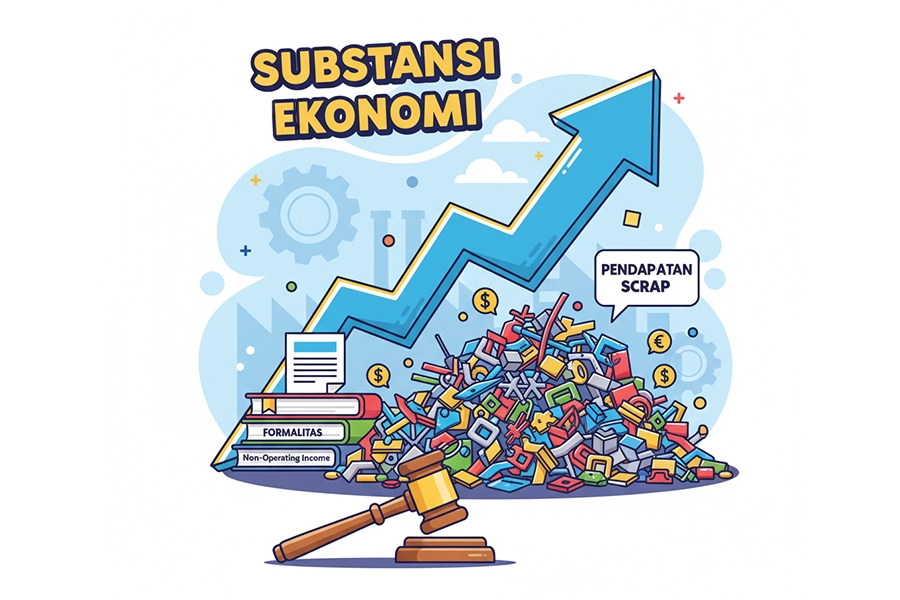
Transfer Pricing (TP) disputes frequently move beyond the mere selection of the correct method, shifting into a crucial debate concerning the consistency of the elements forming the Net Operating Profit. The case involving PT UMSI is a significant study in the affirmation of the substance principle. This dispute originated from a Positive Fiscal Adjustment - Transfer Pricing correction amounting to USD224,891.45 in Corporate Income Tax for the Tax Year 2017. Specifically, it questioned the treatment of income from the sale of scrap (production waste) in the calculation of the Net Cost-Plus Margin (NCPM) using the Transactional Net Margin Method (TNMM).
The heart of this conflict represents a battle between the formal accounting presentation and the economic substance of a manufacturing company. The Directorate General of Taxes (DJP), as the Respondent, argued that scrap income should be excluded from Operating Profit because it was formally classified as non-operating income in the Corporate Income Tax Annual Tax Return and financial statements, as supported by OECD TP Guidelines Paragraph 2.80. With this exclusion, the Appellant’s Actual NCPM was calculated at only 2.09%, a figure deemed to be outside the arm's length range (below the Second Quartile of 3.02%), thus mandating a correction to increase the profit.
However, PT. UMSI strongly contested this, grounding its stance on a far stronger substantive argument. The Appellant maintained that scrap income is routine (recurring) and inherent, as it directly arises as an unavoidable residue of the main production process, which constitutes the operational activity under review. Citing OECD TP Guidelines Paragraph 2.83, the Appellant contended that all operational and routine income items must be taken into account. By including the scrap income, the Appellant’s Actual NCPM increased to 3.10%, which clearly falls within the arm’s length range established by the DJP itself.
The Tax Court Panel of Judges ultimately delivered a decision siding with the truth of the economic substance. The Panel was convinced that the sale of scrap is income of a routine nature and is directly related to operating activities, and therefore, must be included in the determination of the TNMM Net Operating Profit. The Panel explicitly disregarded the formal accounting classification used by the DJP. Since the Appellant's actual NCPM was proven to satisfy the Arm's Length Principle with a figure of 3.10%, the Panel decided to Grant the Appeal in its Entirety, thus cancelling the entire fiscal correction.
This decision sends a clear signal to TP practices in Indonesia: the doctrine of Substance over Form is firmly re-established in the context of profit arm’s length testing. This ruling is a critical precedent for manufacturing taxpayers, emphasizing that a deep and detailed Functional Analysis—one capable of proving the functional linkage and routine nature of an income stream—holds superior legal weight compared to formal accounting labels. Taxpayers are recommended to carefully align their TP documentation with their operational economic reality, and to be prepared to challenge detrimental formal classifications if they do not reflect the substance of the transactions.
A Comprehensive Analysis and the Tax Court Decision on This Dispute is Available Here.